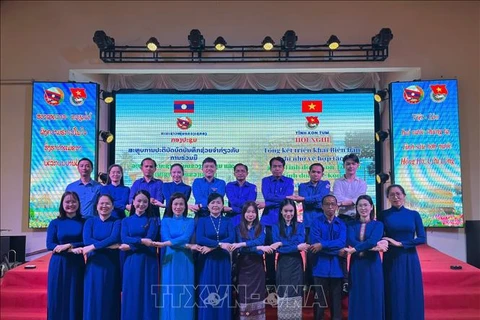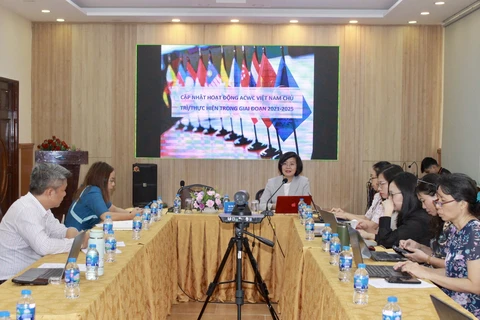
Hanoi (VNA) – The Vietnam Women Entrepreneurs Council (VWEC) under the Vietnam Chamber of Commerce and Industry (VCCI) and the United Nations Environment Programme (UNEP) held a workshop on advancing partnership toward green growth and women's economic empowerment on December 11 in Hanoi.
The event attracted nearly 100 participants from ministries, agencies, business associations and enterprises in Hanoi and neighbouring localities.
Speaking at the event, VWEC Vice President Mai Thi Dieu Huyen said that the workshop aims to provide opportunities to increase connections and cooperation between women-led businesses and leaders of tech companies, banks and financial institutions with green finance programmes and those for women-led enterprises.
Dr. Nguyen Minh Thao, head of Business Environment and Competitiveness Department of the Central Institute for Economic Management (CIEM), said that there will be seven groups of Vietnamese exports expected to be affected by the European Green Deal, approved in 2020. It is a set of policy initiatives by the European Commission with the overarching aim of making the European Union (EU) climate neutral in 2050.
They include electricity, electronics, information technology, machinery, equipment, and components; agricultural and aquatic products, wood and wood products; all kinds of food, especially organic food; textiles and footwear; fertilizers, batteries and accumulators; steel, aluminum and cement; and food packaging and chemicals.
Thao said the deal will push and encourage companies and manufacturers to use clean technologies, expand markets and enhance the ability to integrate clean technologies. However, it poses challenges such as higher requirements on green production, supply management, technological transformation, labour skills, and accountability capacity.
Thao recommended that the Government and State agencies need to provide and update information promptly and issue implementation instructions for localities and enterprises. In addition, they need to coordinate, negotiate, and dialogue with trading partners to discuss implementation methods.
It is also necessary to complete the policy framework on decarbonisation such as phasing out coal power, promoting renewable energy, and energy saving; developing regulations on carbon pricing; completing the legal basis for green taxonomy; and developing a green financial system, she said, adding policies to support businesses in implementing green production is also needed./.






















